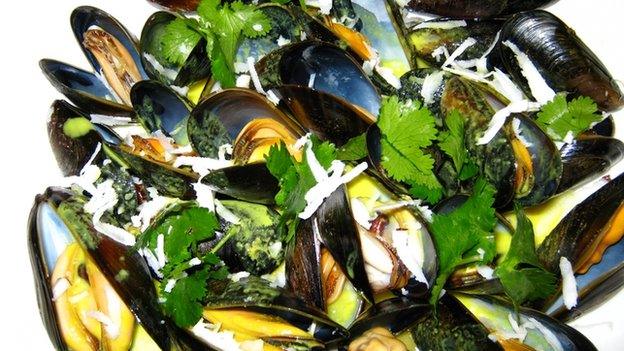More shellfish testing following 'devastating' ban
- Published
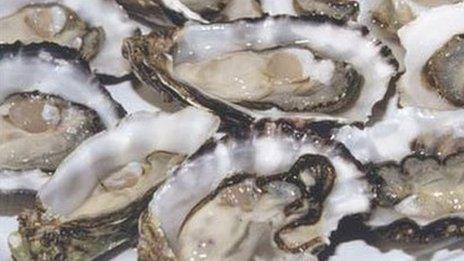
The Fal oyster fishing season starts in October
Plans to revamp the testing regime which monitors water quality and the cleanliness of the shellfish in Cornwall have been announced.
One proposal is to temporarily halt shellfish harvesting when heavy rainfall is predicted.
Water testing in the spring forced the closure of the Fal mussel fishery and a high reading for E.coli in July left the oyster fishery under threat.
Some mussel harvesting has restarted and the oyster fleet is working again.
Chris Ranger, an oyster fisherman in Falmouth, said: "To be told in July you can't harvest was devastating.
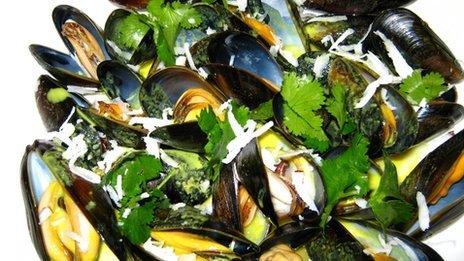
The Truro Port Health Authority said it it had now increased tests in risky areas
"I'm a food producer. I would like to know before there's a high risk."
Ahead of the start of the season the oysters are cultivated and reared in the Fal.
The oyster season itself runs from October to March.
A shellfish flesh sample from Mylor, near Falmouth, in July contained levels of E.coli bacteria 300 times more than that permitted by the Food Standards Agency.
As yet the cause remains unexplained.
The Port Health Authority - which is responsible for the testing regime - said at the time it hoped it was a one-off.
The authority said it had now increased tests in risky areas.
It also hopes to use rainfall predictions to temporarily halt production when there is the greatest risk from run-off and sewage overflow.
David Robertson from the authority said: "It will reduce the amount of guesswork.
"As we've only taken samples once a month it's been unknown what the state of the river is at other times."
Fal oysters are said to have a distinctive sweet, fresh and delicate flavour and are popular with chefs in restaurants around the UK.
- Published8 August 2014
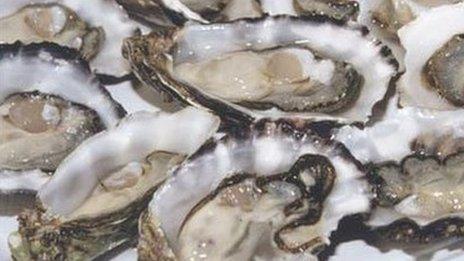
- Published18 July 2014
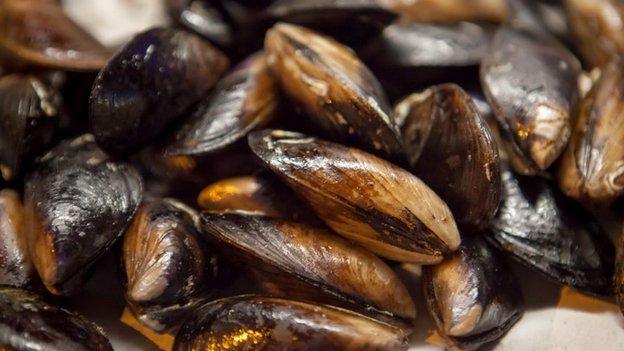
- Published20 May 2014
